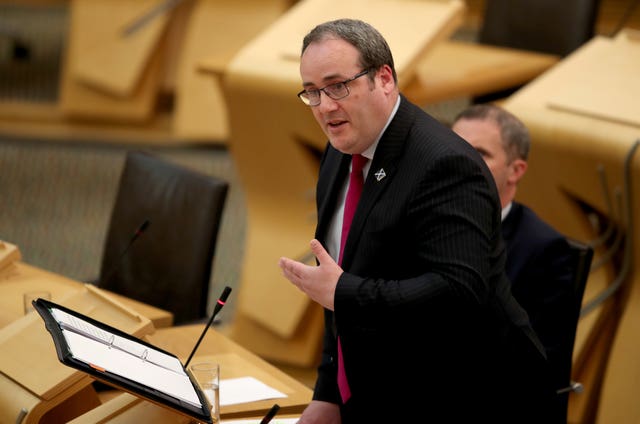Shetland to explore options for ‘independence from Scotland’
Councillors have voted to look into ‘achieving financial and political self-determination’ amid claims of Holyrood centralising power.

Shetland Islands Council has overwhelmingly voted to start looking at ways to become financially and politically independent from Scotland.
Councillors voted 18 to two in favour of a motion to formally explore options “for achieving financial and political self-determination”.
In a debate lasting more than an hour, members argued decision-making has become increasingly centralised and public funding for the islands has been cut under the SNP Government at Holyrood.
The motion, signed by council leader Steven Coutts and convener Malcolm Bell, said: “We are concerned that this ongoing situation is seriously threatening the prosperity and even basic sustainability of Shetland as a community.”
Any move for Shetland to become self-determining would need to be supported by an island-wide referendum, councillors stressed.
Mr Coutts suggested devolution has not benefited the area and said the Scottish Parliament feels “remote” to islanders, who face some of the highest rates of fuel poverty in the country.
He added the levels of funding for ferries “negatively impacts on Shetland and everyone of Shetland”, although the Scottish Government said it has provided more than £15 million for ferry services over the last three years.
The Shetland West councillor referenced the 2013 Lerwick declaration by former first minister Alex Salmond, in which he announced plans to decentralise power to Shetland, Orkney, and the Western Isles.
Quoting Mr Salmond, who stated “we believe that the people who live and work in Scotland are best placed to make decisions about our future”, Mr Coutts said: “Replace Scotland with Shetland and that’s the motion here today, and I encourage you to support it”.
Speaking to the PA news agency after the vote, Mr Coutts welcomed the result and said the council planned to speak to the UK and Scottish Governments next week about options for Shetland’s self-determination.
“The status quo is not working,” he said, adding: “Devolution and the Islands Act have not made any tangible difference to the quality of life.”
Ahead of discussions with the UK and Scottish Governments, Mr Coutts said: “I hope they recognise the challenges of living in Shetland, like the high cost of living, but also the incredible opportunities political and financial self-determination could bring.”
Councillor Ryan Thompson said: “Can anyone sitting around this table – and indeed remotely – honestly say that we haven’t witnessed almost a complete erosion of our democracy, ironically since devolution?
“Certainly over the last three years, I have seen a noticeable and sizeable difference – more and more decision-making powers centralised, more and more ring-fenced funding, more and more decisions being thrust upon us for us to make and then for us to find the funds to make them.
“Powers (have been) centralised, local authorities – precisely at a time when we could have been used to our advantage – have been disenfranchised, ignored and overlooked by Government at every step.”

Explaining the consequences of passing the motion, councillor John Fraser said: “This 22-member chamber is not making a decision on the constitutional future of Shetland.
“Any constitutional changes that ever arise at any time will be decided at the ballot box.
“What we’re asking to approve today is that Shetland Islands Council formally begins exploring options.”
Responding to the vote, islands minister Paul Wheelhouse said neither Shetland nor any other island council had submitted any request for further powers under Additional Powers Request (Scotland) Regulations introduced last year.
He said: “It is the responsibility of individual local authorities to manage their own budgets and to allocate the total financial resources available to them, including on ferry services, on the basis of local needs and priorities.”
On the “profound impact” of coronavirus on island communities, Mr Wheelhouse said: “In order to protect and provide support to our island communities, we have had to reprioritise our efforts to support key areas such as access to lifeline services and maintaining crucial supply chains, while managing the impact the virus has had on the islands economy and preventing transmission.”





